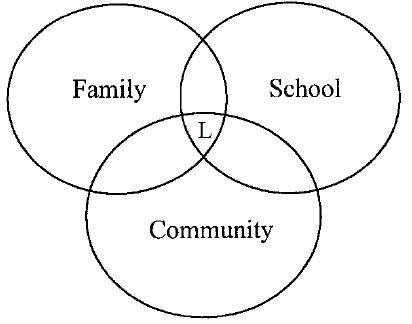Exploring Parental Involvement in Education in Selected Inclusive Secondary Schools in Maseru District, Lesotho
Abstract
This study investigated parental understanding of the concept “Parental Involvement in Education” of their children (PIE) in three inclusive secondary schools in the Maseru District of Lesotho. It also investigated the extent to which parents make contributions to the education of their children. The study was quantitative, exploratory in nature and used a 5-point Likert scale questionnaire to collect data. 700 parents in these schools were randomly selected to fill the questionnaires and the data were analysed using Statistical Package for the Social Sciences (SPSS) software. The results revealed that most parents understand PIE and its implications, but do not do much to assist teachers in schools. Mothers appeared to support the teaching of their children more than fathers. Prominent barriers in their efforts to help teachers included work-related commitments and a lower level of education. The study proposed formation of support groups involving all stakeholders for the purpose of raising awareness about PIE, educating parents about their roles in the education of their children, and improving communication among all stakeholders.
References
Blasko, Z. (2003). Cultural reproduction or cultural mobility? Review of Sociology, 9(1), 5-26. https://doi.org/10.1556/RevSoc.9.2003.1.1
Bourdieu, P. (1985). The social space and the genesis of groups. Social Science Information, 24(2), 195-220. https://doi.org/10.1177/053901885024002001
Bourdieu, P. (1999). Scattered remarks. European Journal of Social Theory, 2(3), 334-340. https://doi.org/10.1177/13684319922224563
Chowa, G. A., Masa, R. D., & Tucker, J. (2013). The effects of parental involvement on academic performance of Ghanaian youth: Testing measurement and relationships using structural equation modelling. Children and Youth Services Review, 35(12), 2020-2030. https://doi.org/10.1016/j.childyouth.2013.09.009
Covey, S. R. (1989). The 7 habits of highly effective people: Powerful lessons in personal change. New York: Simon and Schuster.
Creswell, J. W. (2008). Educational research: Planning, conducting and evaluating quantitative and qualitative research (3rd Ed.). Upper Saddle River, NJ: Pearson Education, Inc.
Damane, M., & Sekantsi, L. P. (2018). The Sources of Unemployment in Lesotho. Modern Economy, 9, 937-965. https://doi.org/10.4236/me.2018.95060
DiGiorgio, C. (2009). Application of Bourdieuian theory to the inclusion of students with learning/physical challenges in multicultural school settings. International Journal of Inclusive Education, 13(2), 179-194. https://doi.org/10.1080/13603110701350622
Donkor, A. K., Issaka, C. A., & Asante, J. (2013). Cultural practices and education in Ghana: the effects of traditional culture on parental involvement in education. Research on Humanities and Social Sciences, 3(7), 110-120.
Eizadirad, A. (2016). International Experience in a Non-Western Country, Teacher Habitus, and Level of Inclusion in the Classroom. International Journal of Teaching and Education, IV(1), 1-15. https://doi.org/10.20472/TE.2016.4.1.001
Engelbrecht, P., Forlin, C., Eloff, I., & Swart, E. (2001). Developing a support programme for teachers involved with inclusion in South Africa. International Journal of Special Education, 16(1), 80-89.
Epstein, J. L. (1995). School/family/community partnerships. Caring for the children we share. Phi Delta Kappan, May: 701-712.
Epstein, J. L. (1997). A comprehensive framework for school, family and community partnerships. J. L. Epstein, L. Coates, K. C. Salinas, & B. S. Simon (Eds.), School, family, and partnerships: Your handbook for action. Thousand Oaks, California: Corwin Press.
Erlendsdottir, G. (2010). Effects of parental involvement in education. A case study in Namibia. Unpublished M. Ed. dissertation. Iceland, University of Iceland.
Fantuzzo, J., McWayne, C., Perry, M., & Childs, S. (2004). Multiple dimensions of family involvement and their relations to behavioral and learning competencies for urban, low-income children. The School Psychology Review, 33(4), 467-480. https://doi.org/10.1080/02796015.2004.12086262
Finders, M., & Lewis, C. (1994). Why some parents don’t come to school. Educational Leadership, 51(8), 50-54.
Fullan, M. (1997). Broadening the concept of teacher leadership. S. Caldwell (Ed.), Professional development in learning-centered schools. Oxford, OH: National Staff Development Council.
Gall, D., Gall, P., & Borg, R. (2003). Educational Research – An Introduction. Library of Congress Cataloging-in-Publication Data, The United States of America.
Hanson, E. (1991). Educational administration and organizational behavior. Boston: Allyn & Bacon.
Kaperu, G. (2004). Parental involvement in the education of their children. The case of unisa institutional repository.
Learning Liftoff. (2017). Why a Parent’s Role Is Essential to Student Success. Retrieved from https://www.learningliftoff.com/category/education/learning-challenges/
Lemmer, E. M. (2007). Parent involvement in teacher education in South Africa. International Journal about parents in Education, 1(0), 218-229.
Lemmer, E., & van Wyk, N. (2004). Schools reaching out: comprehensive parent involvement in South African primary schools. Africa Education Review, 1(2), 259- 278. https://doi.org/10.1080/18146620408566284
Lesitsi, A. M. (1990). Seemahale. Southern Africa: Hodder and Stroughton Educational.
Lesotho Government Gazette – Extraordinary. (2010). No. 20. Education Act, 2010. Lesotho: Government Printing – published by the Authority of His Majesty the King.
Macfarlane, A. (2005). Inclusion and Mäori ecologies: An educultural approach. D. Fraser, R. Moltzen & K. Ryba (eds.). Learners with special needs in Aotearoa New Zealand (3rd ed.). Melbourne: Thomson Dunmore Press.
Mahlo, F. D. (2011). Experiences of Learning Support Teachers in the Foundation Phase, with Reference to the Implementation of Inclusive Education in Gauteng. Doctor of education, Thesis. South Africa: University of South Africa.
Makgopa, M., & Mokhele, M. (2013). Teachers’ perceptions on parental involvement: a case study of two South African schools. Journal of Educational and Social Research, 3(3), 219-225.
Maluleke, S. G. (2014). Parental Involvement in their children’s education in the Vhembe District – Limpopo. Med. Thesis. University of South Africa, South Africa.
Manilal, R. (2014). Parental involvement in education: A comparison between a privileged and underprivileged school. MEd. Thesis. University of KwaZulu-Natal, South Africa.
Mbokodi, S. M., & Singh, P. (2011). Parental Partnerships in the Governance of Schools in the Black Townships of Port Elizabeth. Perspectives in Education, 29(4), 38-48.
McLoughlin, S. W., Campbell, K. C., Eagle, J. F., Howard, C. J, Johnson, S. E., Macintosh, C. L., Scrivner, C. M. & Williams, A. Y. (2012). Student motivation: A home remedy. Kappa Delta Pi Record, 39(3), 122-125.
Miles, S. (2005). Inclusive Education, Key issues and debates: Mainstreaming Disability in Development – The example of Inclusive Education. UK: Save the Children.
Msila, V. (2012). Black Parental Involvement in South African Schools: Will Parents ever help in Enhancing Effective School Management? 2(2). Unisa. Pretoria
Naidoo, D. (2004). Linking the utilization of research findings to research in MST education. Paper presented at the 12th Annual Conference of the Southern African Association for research in Mathematics, Science and Technology Education. University of Cape Town.
Ndlazi, S. M. (1999). An investigation of parental non-involvement in the governance of a Duncan Village school and its implications for the management of the school: A case study. Unpublished MEd. Thesis. Rhodes University: Grahams town.
Nghipondoka, E. A. S. (2001). The Implementation of inclusive education in Tsandi Constituency, Namibia. Med. dissertation. Bellville: University of Western Cape.
Nojaja, J. M. (2009). A model for parent involvement in disadvantaged South African schools. Unpublished Doctor of Philosophy thesis. North-West University, Vanderbijl.
Ntekane, A. (2018). Parental Involvement in Education. https://doi.org/10.13140/RG.2.2.36330.21440
Okeke, C. I. (2014). Effective home-school partnership: some strategies to help strengthen parental involvement. South African Journal of Education, 34(3), 1-9.
Olatoye, R. A. & Agbatogun, A. O. (2009). Parental involvement as a correlate of pupils’ achievement in mathematics and science in Ogun State, Nigeria. Educational Research and Review, 4(10), 457-464.
Porter, L. (2002). Educating young children with special needs. London: Sage.
Pryor, J., & Ampiah, J. G. (2003). Understanding of education in an African village: The role of information and communication technologies. Report on DFID Research Project Ed2000-88. Retrieved from http://www.sussex.ac.uk/education/cheer/documents/umea-conference-jan-2014-understandings-of-education-in-an-african-village.pdf (Accessed 15/03/2015).
Ralejoe, M. C. (2016). The perceptions of Lesotho secondary schools’ teachers about the inclusion of students with disabilities. Unpublished doctoral dissertation. University of South Africa, Pretoria, RSA.
Russell, F. (2005). Starting school: The importance of parents’ expectations. Journal of Research in Special Educational Needs, 5(3), 118-126.
Smit, F., & Driessen, G. (2005). Ethnic minority parents’ and teachers’ orientation on collaboration between home and school: Strategies and contexts. Aula Abierta, 86, 169-184.
Sottie, C. A. (2011). Stemming the tide: School dropout in Ghana. Saarbrücken: Lambert Academic Publishing.
Stubbs, S. (2002). Inclusive Education: Where there are few resources. Norway: Atlas Alliance.


This work is licensed under a Creative Commons Attribution 4.0 International License.
Copyright for this article is retained by the author(s), with first publication rights granted to the journal.
This is an open-access article distributed under the terms and conditions of the Creative Commons Attribution license (http://creativecommons.org/licenses/by/4.0/).








1.png)

















